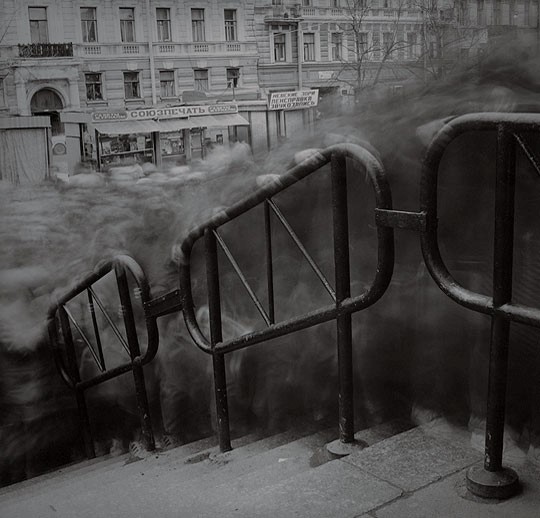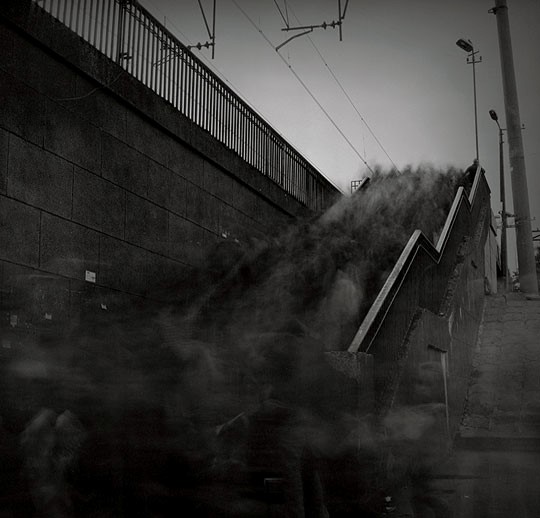Ned Beauman looks into who bosses who

In 1923, Cecil B DeMille paid two assistants a hefty bonus to sit on the beach for a few weeks until they were so sunburnt they looked like braised pork belly. The purpose of their agony was that, during the filming of The Ten Commandments, DeMille wanted to know exactly how much scorch-simulating oil to squirt on the 2,500 extras playing Israelites in the desert. Those extras had been sent out on a train to the Californian plains along with nearly twice as many animals, and when they got there they established Camp DeMille, basically a private town, with its own dairy, its own hospital, its own jazz band, its own school and its own vice cops.
The journalist and clergyman Daniel A. Lord, who had once been a consultant to DeMille, wrote: “He was a strange and fascinating blend of absolute monarch and charming gentleman, of excellent host and exacting taskmaster.” Well, at Camp DeMille, he really was a monarch, or at least a mayor. But he was a benign one. “The way to direct crowds of extras,” DeMille wrote in his autobiography, “is never to think of them as ‘extras.’ They are individuals, they are players, they are part of the whole, with a function as important in its way as the function of the stars. They respond – and you can see the difference on the stage or screen.” When he was filming the attack on the fortress of La Tourelle in Joan of Arc, DeMille offered a bonus to the “English” if they “captured” Joan and to the “French” if they prevented the capture. The English won, thereby inconveniently warping recorded history.
There's something enthralling about places like Camp DeMille. Last year, you may remember, Greg Grandian published his excellent Fordlandia: The Rise and Fall of Henry Ford's Jungle City. Unfortunately for our purposes, Henry Ford didn't die on the same date as Cecil B DeMille, but I'll tell you who did: George Washington Goethals, who supervised the construction of the Panama Canal, and therefore ruled over the Canal Zone, which was not so much an artificial town like Camp DeMille or an artificial city like Fordlandia but a small artificial nation. Dairy, hospital, jazz band... that's nothing. The Canal Zone, with its workforce of thirty thousand, had courthouses, post offices, a newspaper and an army.
Goethal's regime was described by Zone policeman Harry Franck as “enlightened despotism.” The former army engineer was “an Omnipotent, Omniscient, Omnipresent ruler... so consistently on the job that we never thought of him as being at home or eating or sleeping.” If that sounds a bit sinister, then perhaps it should: when two journalists who attacked the Zone government in a New Orleans newspaper made the mistake of remaining on the site after their article had been published, they were arrested, prosecuted for criminal libel and imprisoned.
Left-wingers presumably didn't flock to the Canal Zone, but another journalist, Arthur Bullard, somehow managed to find a member of the US Socialist Party working there. “There ain't any democracy down here,” Bullard was told. “It's a Bureaucracy that's got Russia backed off the map.” Which leads us inevitably to another man who died on January 21: Vladimir Lenin. The first labour camps and prison camps in Russia were established under Lenin's rule, not Stalin's – but their infrastructures, of course, were not yet as developed as Camp DeMille's or the Canal Zone's. One can't help wondering what might have resulted if these three autocrats, with their superhuman stamina and their obsessive attention to detail, had swapped places – if Cecil B DeMille had built the Panama Canal, George Washington Goethals had run the Russian Revolution, and Lenin had directed The Ten Commandments. Perhaps one would hardly have been able to tell the difference.
Ned Beauman used to be Commissioning Editor at Another Man, writes often for Dazed & Confused and has contributed to the Guardian, the Financial Times, and many other publications. His debut novel Boxer, Beetle will be published by Sceptre in August 2010



